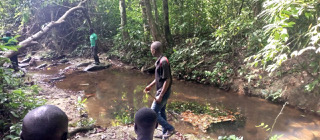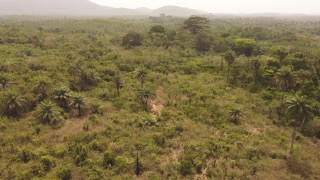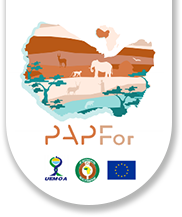Home / News / To the establishment of community bylaws for forest protection in Gola Foya (...)
To the establishment of community bylaws for forest protection in Gola Foya landscape
In December 2010, Gola Rainforest was declared the second National Park in Sierra Leone by former president Ernest Bai Koroma. The Gola Rainforest is the largest remnant of the Upper Guinean Tropical Rainforest in the country. It is home to thousands of plants, birds, butterflies, and mammals, of which 60 000 are globally threatened.
Before the intervention of EU-PAPFor through the Conservation Society for Sierra Leone (CSSL), there had been a conflict of interest in preventing communities from entering the park. However, with support from the EU project, 102 communities consented to manage their forests.
Further, communities have enacted bylaws that enable legal action to be taken against individuals who violate the community forest management laws headed by the Community Forests Management Committee (CFMC). The law also governs the activities of the CFMC. A fine of 500 000 Leones (USD 25) is levied on anyone engaging in activities that violate the ecosystem.

"We are very serious about preserving our forest. There are regular patrols of the area by members of the CFMC, who are familiar with the entire area. No one is permitted to engage in any activity that will destroy the forest. Several persons were caught who had engaged in these activities before but were reported to the CFMC and town authorities. The defaulters were warned not to repeat such actions. However, violators will have to pay a fine", said Lahai Nyallay, an elder from Joru town, the headquarters of the Gaura Chiefdom.
The establishment of community forests through the PAPFor project has undoubtedly increased the forest cover, thereby boosting the forest resources. In addition, community forests have proven to be successful mechanisms in addressing forest degradation issues. The people of Gaura Chiefdom have been highly supportive of the project, and quite remarkably, they have taken up the responsibility to protect their forest.


